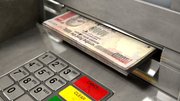News
Lock, stock and ATM in the UK
The UK's independent ATM providers are in a fund raising mode. Two of them, Cardpoint and Moneybox, have raised money through IPOs.
May 13, 2004
Three years after the United Kingdom's Linknetwork began allowing ATM surcharges, which created a booming business in independently owned ATMs, the UK's independent deployers are in a major fund raising mode.
Two independents have taken their companies public in the past two years, a strategy not common among their U.S. counterparts. Cardpointbecame the first British ISO to list its stock on the Alternative Investment Market (AIM) in June of 2002, followed by Moneyboxin March of 2004.
In the U.S., only Cardtronics has taken a similar step, recently announcing plans for an initial public offering in which it hopes to raise up to $115 million.
The AIM, a 9-year-old market owned and operated by the London Stock Exchange, offers more flexibility and lower costs for small, growth-oriented companies than some of Europe's more established markets. For instance, companies do not need a three-year history to list on AIM, and AIM does not require companies to obtain shareholder approval for acquisitions unless it is a reverse takeover.
Indeed, both Cardpoint and Moneybox used some of the cash raised in their IPOs for acquisitions.
Cardpoint purchased ATM Express Limited or Green Machine for approximately £1.3 million (about $2 million U.S.) in cash and stock in October of 2002. In May of 2003, Cardpoint paid £5 million (about $8.2 million U.S.) for the ATM business of Securicor, with further payments of £5 million to follow, depending on transaction volumes and other factors.
The acquisitions quadrupled the size of Cardpoint's ATM fleet, to 1,700 machines.
Last July, Cardpoint also acquired PT Distribution Limited, a division of Project Telecom that operates 2,900 mobile phone top-up terminals, for £1.7 million (about $2.7 million U.S.)
Moneybox plans to use £7.5 million (U.S. $13.7 million) of the £21.8 million (U.S. $40 million) it raised in its IPO to purchase transaction processor G2. In addition to the new stock, Moneybox shareholders raised an additional £25.7 million (U.S. $47 million) by selling existing shares.
TRM Corporation, a public company that owns and operates ATMs and photocopiers in the U.S. and the UK, last month purchased 450 UK ATM contracts from Inkas Financial Corp., swelling its network to 2,600 machines.
"I have no doubt that down the road you're going to see a smaller number of these companies," said Dominic Hirsch, managing director of the London-based Retail Banking Research consulting firm. "The less profitable companies will have to sell out. I think raising capital has been one of the main drivers for those who have floated."
By going public, Hirsch said, UK independents can borrow much larger sums from British banks, which are notoriously risk averse when it comes to lending money. Cardpoint placed a number of shares to institutional shareholders when it purchased Green Machine, which allowed it to draw down a further £500,000 (U.S. $783,000) of its £5 million revolving credit facility with the Bank of Scotland.
IPOs are not as logical a strategy in markets, such as the U.S., where merchant-owned ATMs are more common than placements, said Paul Stanley, chief executive of Moneybox.
Other UK ATM providers are getting cash infusions from investment firms. Euronetsold its 745 ATM contracts to Bridgepoint Capital Limited for $29.6 million in January of 2003.
Independent ATMs are "quite a sexy little sector" in the UK, said Ron Delnevo, managing director of the business, now renamed Bank Machine Ltd. "I think people appreciate the kinds of multiples these companies can generate."













